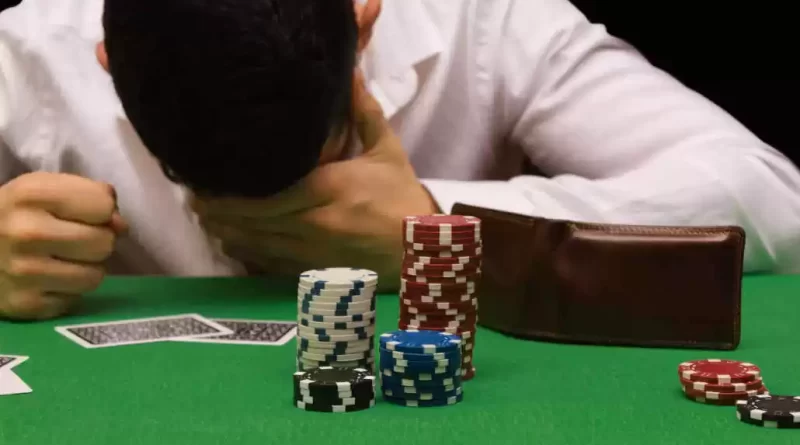Responsible Gambling – Tips for Staying in Control
Responsible gambling is an initiative to combat the addictive nature of gambling by offering tools and resources to prevent problem gambling. This may involve recognizing warning signs, setting limits, and taking regular breaks.
One key tip for gambling should be seen as an enjoyable activity rather than an income source; this will help avoid financial complications and potentially developing an addiction to gambling.
Set Limits
As gambling becomes an ever-more-common pastime in America, it’s imperative that players understand the significance of responsible gambling practices. These strategies aim to balance gaming activities with other aspects of life while preventing dangerous impulsiveness from emerging during gaming sessions. Utilizing such practices also ensure players can enjoy their time at casinos without risking financial stability or relationships with loved ones.
Setting limits when playing slots is one of the key practices associated with responsible gambling, and should be treated as such. This means identifying an amount you feel comfortable spending and adhering to it – this could involve setting a budget or using mobile apps that track playing time – as well as setting daily playing time limits on yourself.
Responsible gambling tools available through many online casinos and sportsbooks include deposit limits, timeout sessions, wagering limits, cool off periods and self-exclusion options. While such tools are most often utilized by those suffering from gambling addictions, they can also prove valuable for anyone attempting to keep their betting habits under control.
Some of these tools are mandated by casinos while others form part of a responsible gambling program. Responsible gambling programs aim to prevent problem gambling from starting from the beginning; so it’s vital that casino patrons understand all of their options available to them – these programs may include property signage, responsible gambling disclosures on casino websites or employee training.
Don’t Chase Losses
Responsible gambling may not always apply to all, and in particular it should never have harmful repercussions for some. One major red flag of risky gambling behavior is chasing losses – repeatedly placing bets to recover previous losses through betting – this shows a lack of self-control and may indicate someone needs assistance.
If your gambling habits have resulted in more losses than wins, it’s time to set boundaries and stick with them. Setting time and money limits with apps or websites such as Bet Diary allows you to set boundaries while monitor spending habits; moreover, many betting sites also provide self-exclusion tools so you can take breaks for any period from an hour up to several weeks if needed.
Finding activities to fill the void left by gambling can help – this might include exercise, family and friend time, hobby-related activities or work. Therapy or financial/credit counselling might be useful to address any underlying causes for your behavior and make healthy changes; alternatively you could seek support through beGambleAware, Gamblers Anonymous or Gam-Anon as free resources.
Take Regular Breaks
Responsible gambling requires taking breaks from gambling. Breaks can help you refocus and recharge, helping prevent emotional overstimulation that leads to impulsive decisions. Furthermore, gambling breaks are beneficial to both physical and mental wellbeing – too much sitting can cause back pain, neck problems and eye strain which are difficult to overcome without taking a break from gaming.
Gambling should never be undertaken when feeling emotionally distraught or stressed out; otherwise it can quickly become an addiction that has long-term negative repercussions for both mental and physical wellbeing. Furthermore, it’s advisable not to drink alcohol or take drugs while gambling as this may impair judgment and cause you to make hasty decisions that can have lasting repercussions later on.
Responsible gamblers understand that winning isn’t guaranteed and that the house always has greater odds of victory than their players, which helps them to set realistic expectations and set limits on their gambling activities. Knowing your true odds allows you to make informed decisions regarding how much and for how long to gamble; you can do this by researching games before playing them or consulting an expert; this information is readily available and could prove to be extremely valuable in improving the experience overall.
Don’t Make Gambling a Source of Income
Gambling as a source of income can have serious repercussions. This is particularly evident when gambling leads a person to neglect other responsibilities like work and family for gambling purposes; spending money they cannot afford to lose leads them into financial distress and sometimes bankruptcy; assets are sold or borrowed against in order to fund this addiction; in extreme cases criminal activity may even take place to fund this addiction.
Gamblers should only gamble with money they can afford to lose, which can be accomplished by setting spending limits and using budgeting apps or free betting diaries. Furthermore, it’s wise not to chase losses by gambling more in order to regain what has already been lost; rather take a break and focus on other aspects such as family, friends or work instead.
If you or one of your family members has an unhealthy gambling addiction, seeking professional assistance is critical. Seeking legal and financial advice may enable you to explore all possible solutions; including amending wills to prevent inheritances being used for gambling purposes in future.

